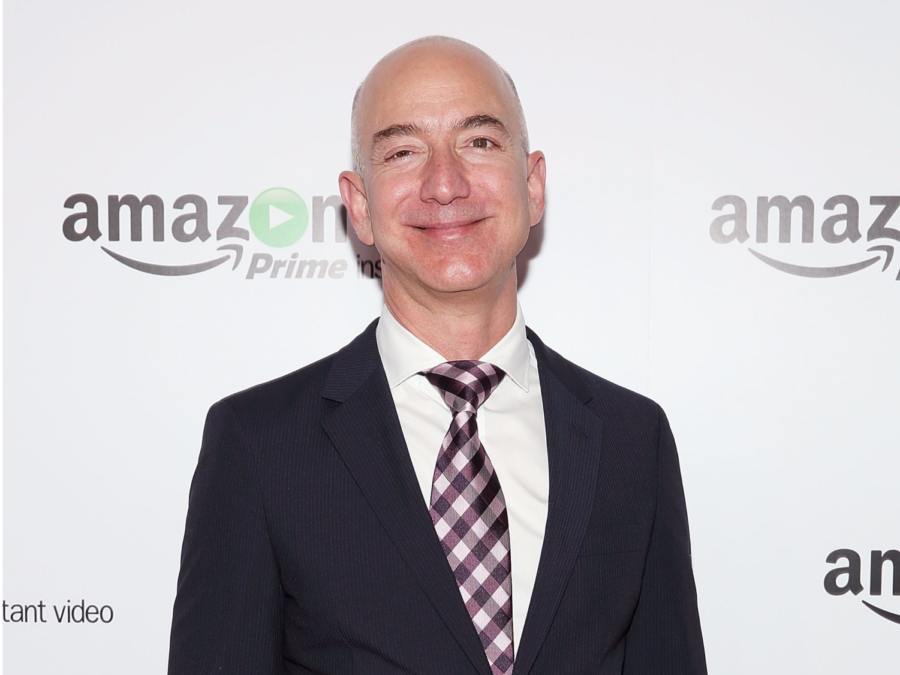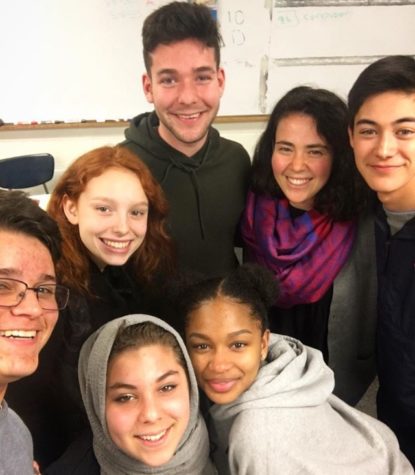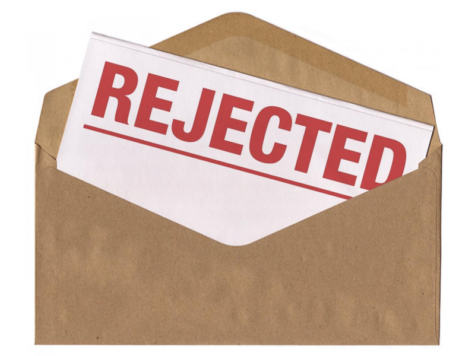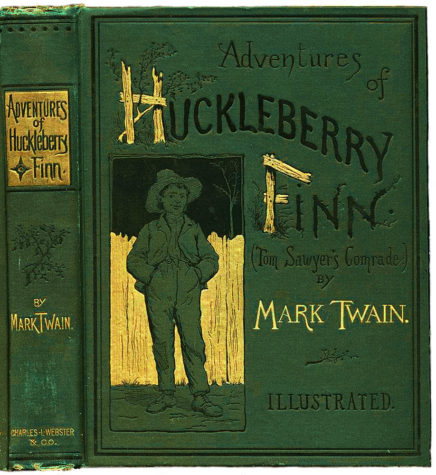It’s Jeff Bezos’ World; We’re Just Living In It
October 23, 2017
More than often we hear about the “self-made man” who rose from a handful of pennies to a vast fortune because he worked hard despite unpromising circumstances. The moral of this oft-told story is that effort is ultimately more telling than one’s schooling, upbringing or class. This notion is what has brought tens of thousands of immigrants to the US every year, what some politicians base their political views off of, and what makes many Americans proud to be American. In the early 1800’s, Benjamin Franklin pioneered this notion otherwise known as the American Dream and, in 2017, Jeff Bezos destroyed it.
Jeff Bezos fulfilled his own American Dream – he built a multi-billion dollar company, rose up the socioeconomic ranks, and became the richest man in the world, despite being born to a mother who was the same age as those in class of 2018. And for that, I commend him; it takes hard work and determination to build a company like Amazon. But what separates his success and that of others who have similarly achieved the American Dream is that his success has undermined the ability of others in the future to do so.
America has always touted itself as “the land of opportunity.” I can think of no phrase more ubiquitous in our culture. This defining part of our American pride is slowly slipping away into the hands of Amazon. There are so many immigrants who come to the US to make a better life for their family or Americans who are born into poor families and have a dream to work their way up the rungs of society. More often than not, these people do not have access to a reasonable education and, consequently, lack the opportunity to earn a college degree. Accordingly, many are left with blue collar jobs. Working their way up the rungs of society is determined not so much by hard work, but by luck. We can’t assume that they will find better opportunities; many will continue to work those jobs for years. But, if we continue to move towards e-commerce, will those jobs be around for much longer? And, even if Amazon does create jobs, will it be able to create enough jobs to compensate for those it destroyed?
I’m not saying every single sector of our economy will be affected by this. Plenty of people will have still have their jobs. Amazon can’t help you if you’re sick, if you are in a lawsuit with someone, or if your house is burning down. But this doesn’t create a very good threshold nor does it take into account that the people who need these jobs most: blue collar workers. By destroying an essential part of our economy, like retail, we lose a source of opportunity for so many and a hallmark of American ideals.
E-commerce presents a difficult situation for the consumer as well. On the one hand, items are cheaper on Amazon but, on the other, we want to support our local economy and keep stores in business. The issue is that there is not a lot of incentive to boycott Amazon when there is free two-day shipping and cheaper prices for the exact same item. As humans, we are inclined towards the more convenient and cheap option. It’s also hard to believe that a personal decision to shop at a store instead of Amazon is going to keep that store in business. But it’s this sort of thinking that creates a domino effect. Everyone reassures themselves that their one decision isn’t going to make enough of a change to keep stores in business. Therefore, they should continue to support e-commerce because it makes their lives easier and keeps them wealthier. The collective impact of this thinking is what will impact local economies the most.
Amazon does have its advantages; there’s no denying that. But we can’t continue to separate it from the negative consequences it could create. Retail is one of the most important sectors of our economy. Can you imagine a world without stores? Me either.
Sources
https://www.cnbc.com/2017/07/27/amazons-jeff-bezos-son-of-a-teen-mom-to-richest-person-in-the-world.html
http://www.businessinsider.com/read-amazon-ceo-jeff-bezos-2016-letter-to-shareholders-2017-4








Hanke Chen • Nov 7, 2017 at 12:27 pm
I would not say that e-commerce did not cause the reduction of the job opportunities for some people. Yes, probably people are not able to survive by making alternative products. However, people who lose their jobs could find other jobs on Amazon. E-commerce increases the efficiency of producing products and adds wealth to the overall society.
Appart from the Prisoners’ Dilemma, making money and creating demands are good for the overall society.
Nick Hansen • Oct 31, 2017 at 5:10 pm
I think the article effectively speaks to the struggle in today’s economy for small businesses and the dominance of Amazon toward them. As they take over different chunks of particular markets and offer some of the most competitive pricing it almost becomes impossible for others to keep up, especially small independent stores. E-commerce is sure to become more popular, as it has over the last couple of decades but hopefully not to a point where physical stores are scarce or even nonexistent. As we see large wholesale stores start to decline, you can’t help but worry. Bezo has definitely earned his ranks in today’s e-commerce market, especially with the new addition of Whole Foods to challenge the food market but hopefully, the company can find a way to create more jobs instead of taking them.
Haoran Zhu • Oct 29, 2017 at 12:03 am
Great perspective. I seldom see an article about economics on Wildezine, but anyways, it is true that E-commerce will reduce blue-collar jobs, but the reality is that our economy is progressing forward and innovating. This century is one of rampant global issues but also one of rapid technological advancements and intellectual inventions. Thus, E-commerce becomes a tradeoff problem: do we want more innovation or more equality? According to economic theory, innovation, but humans naturally are compassionate people who show empathy to those who suffer. If we do a straightforward cost-benefit analysis, the cost of E-commerce is the loss of physical labor for a portion of people in our society but the numerous benefits came out from E-commerce are much greater: marketization reduces costs and opens up new jobs. These jobs will incentivize people to learn more about e-commerce and compete, which advances our society if the majority of people is focusing on the Internet. Besides, as a new thing is developed, there are plenty of new opportunities created for people to seize. We have to move forward sometimes.
Jasper • Oct 24, 2017 at 8:09 pm
I think these are very good points but the article does not really talk about the jobs created from e-commerce expansion. While I don’t know the numbers, I do know that when for example a new Amazon warehouse opens up in a city (and they are opening up rapidly as Amazon continues to expand), it brings thousands of jobs to the city/town. Many times these new warehouses are in areas such as less wealthy or small towns where these new jobs make a significant impact. More e-commerce also means more shipping which further creates/supports new jobs. It certainly is a debatable topic, but e-commerce certainly does have the potential to positively impact many places with just one order.